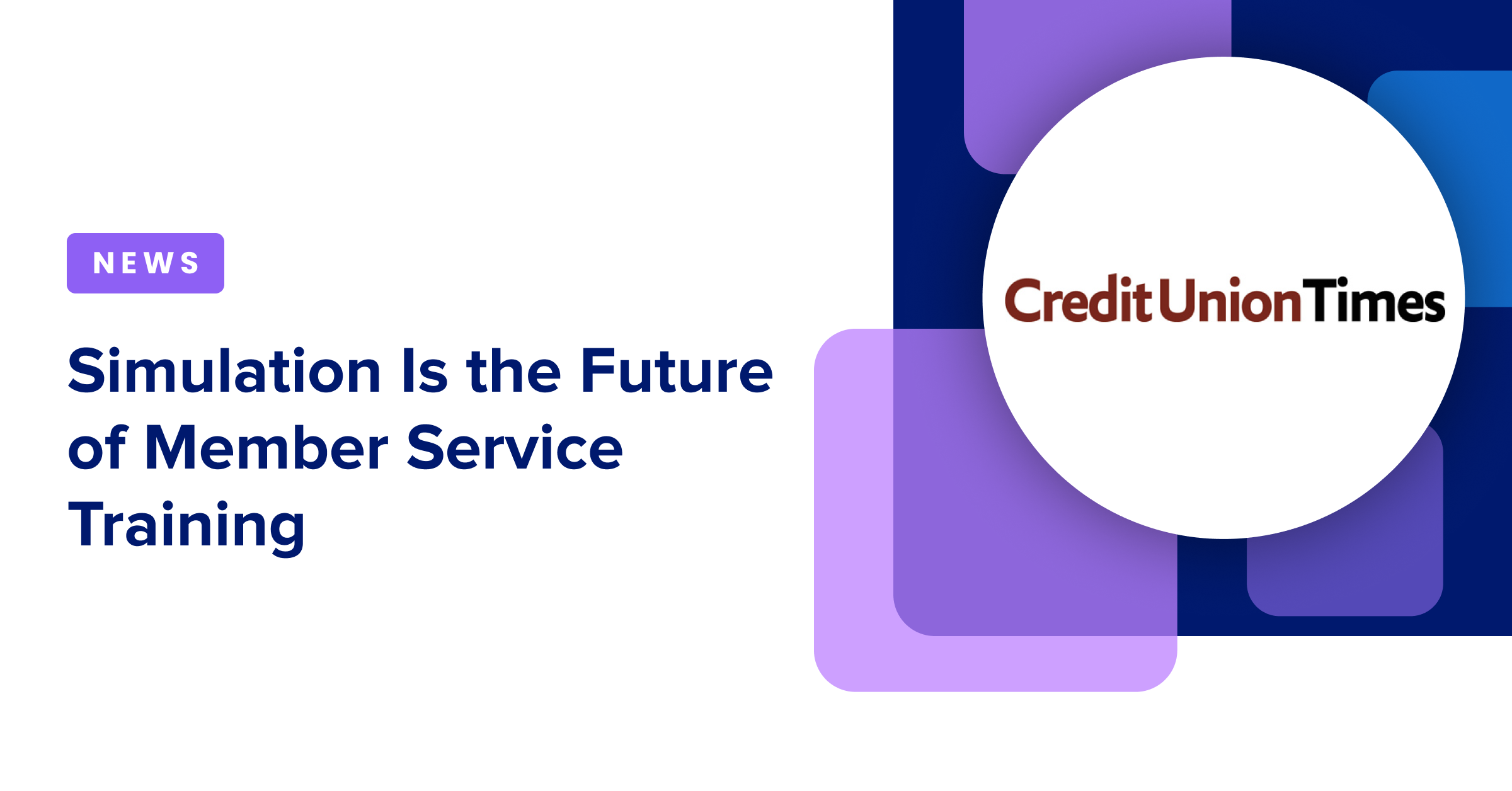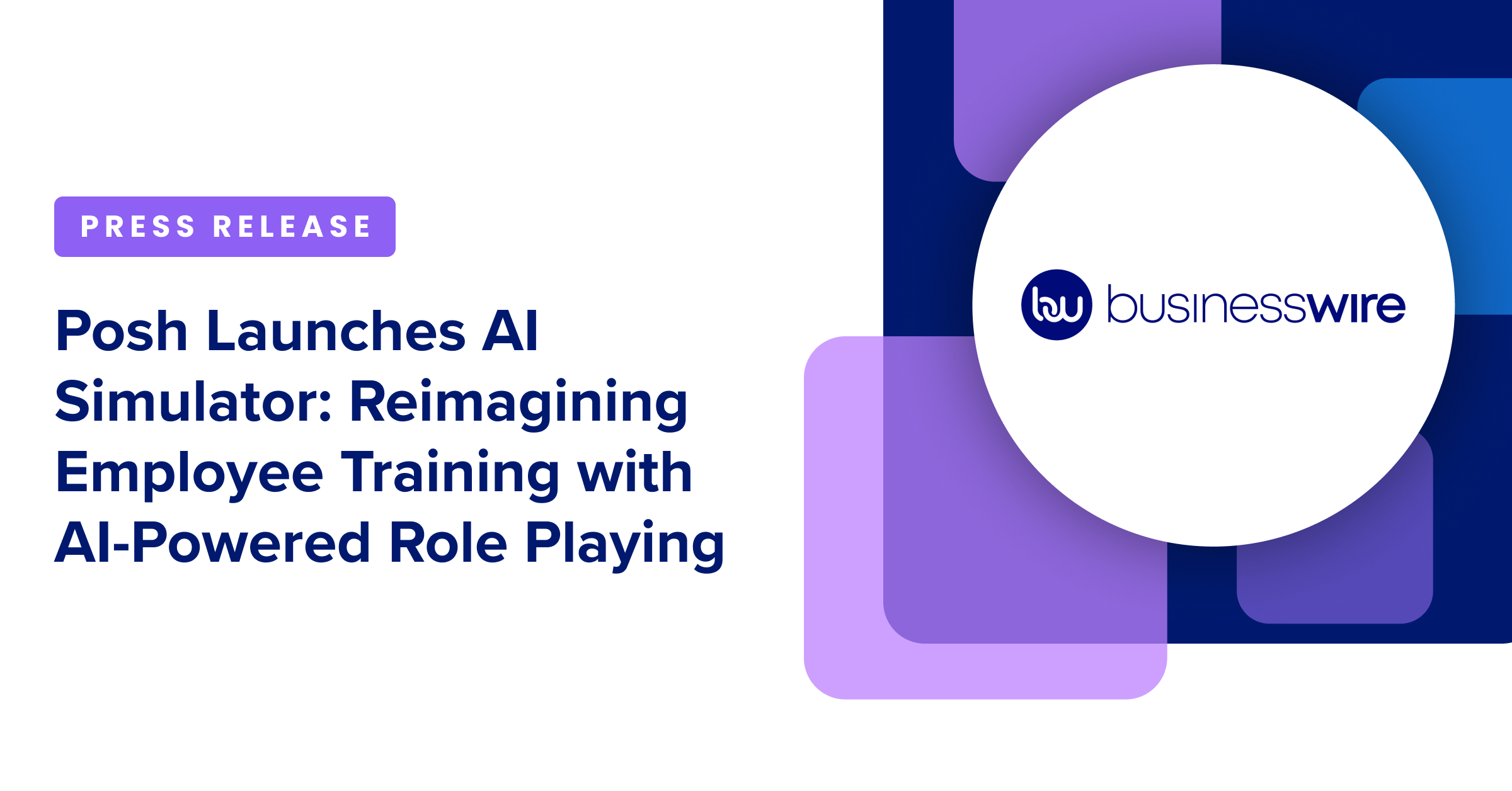AI Products
Customer-facing
Employee-facing
Who We Help
Employee-facing
Platform
Trust & Security
Copyright ©0000 Posh AI. All Rights Reserved.
Boston, MA — November 14, 2025 — Forbes - If you’re a pilot, you don’t learn to fly by reading a manual. If you’re a quarterback, you don’t step onto the field without drills. In any high-stakes profession, mastery starts with simulation.
The same is true in financial services. Loan officers must explain complex terms under pressure. HR leaders need to evaluate communication and cultural fit. Customer experience teams are expected to handle nuanced interactions with empathy and precision. Across every department, employees are asked to perform with confidence after only a few days of training.
Too often, that training means static PDFs, outdated decks or a handful of ride-alongs. What follows is a flood of institutional knowledge trickling down unevenly.
That’s not training. It’s hoping for the best.
Industries that demand precision do not rely on static knowledge. They build muscle memory through simulation. Financial institutions should be no different.
In aviation, simulators recreate turbulence and failures not to scare pilots, but to prepare them. Athletes scrimmage intensely before game day. Emergency responders practice realistic stress scenarios. Why? Because when pressure hits, you fall back on training.
The same holds in financial services. Consider a call center agent defusing fraud, a loan officer walking through repayment terms or an HR manager evaluating communication under pressure. None of these can be solved with manuals alone.
Simulation lets teams practice those moments before they count. The best environments go beyond common cases, exposing teams to edge cases and real-world nuance that scripted decks cannot replicate.
Effective simulation is dynamic, mirroring real job pressures such as shifting tone, rising stress and unexpected variables. It forces people to think, adapt and communicate clearly when the stakes are high.
At its best, simulation is embedded into your operating rhythm. Here is how organizations can use it:
• Scenario-Based Practice: Employees run through simulations with dynamic variables such as product changes, regulatory updates and unique customer needs. These scenarios are not about right answers but about reasoning, empathy and problem-solving.
• Shadow Deployments: Before employees go live, they run simulated workflows using the same tools, knowledge bases and escalation paths in a safe but realistic environment.
• AI-Augmented Feedback: AI tools deliver objective coaching, measuring compliance and escalation handling with feedback that is specific and continuous.
• Team-Level Exercises: Cross-functional drills involving compliance, product, risk and customer teams align everyone during policy changes, launches or crises.
AI now handles routine inquiries. That leaves humans with higher-value, higher-complexity interactions, not just frontline agents, but also loan officers, collections teams, managers and staff practicing cross-sell or upsell. Policies matter, but judgment, empathy and adaptability matter more.
Simulation gives employees space to practice those skills safely. It also trains AI itself by generating interaction data that sharpens models and improves collaboration.
In short, simulation is where people and AI learn together.
In our experience, simulation drives measurable outcomes:
• Faster Proficiency: New hires can ramp up quickly, potentially reducing errors and boosting confidence.
• Greater Retention: We've found that simulation improves knowledge retention by two and a half times compared to static systems.
• Better Experience: Agents trained on complex scenarios often deliver smoother, more accurate support, raising CSAT and trust.
• Reduced Risk: Compliance scenarios are rehearsed, not improvised, which can lower escalations and strengthen audit trails.
• Improved Retention: Simulation identifies skill gaps early and builds targeted coaching paths.
• Scalable Knowledge: Simulation codifies expertise and distributes it consistently rather than relying on informal hubs.
Beyond performance, simulation builds a culture of continuous improvement.
Regular practice empowers teams to adapt, solve problems and own outcomes. It shifts organizations from reactive to proactive, breaking down silos between compliance, product and service. Teams train for excellence every day.
You cannot script every customer question or exception. But you can prepare people for the unexpected. To raise the bar for customer experience, performance, compliance and AI adoption, simulation should be core, not an add-on.
This requires leadership commitment, budget and infrastructure. This can lead to better-prepared employees, aligned teams, stronger customer trust and resilience for what comes next.
High-performing industries have relied on simulation for decades. It is time for financial institutions to do the same, across every role where judgment, confidence and adaptability matter most.



Simulation Is the Future of Member Service Training

Posh Launches AI Simulator: Reimagining Employee Training with AI-Powered Role Playing


Are you attending and interested in learning more?
Email info@posh.ai for the recording!





